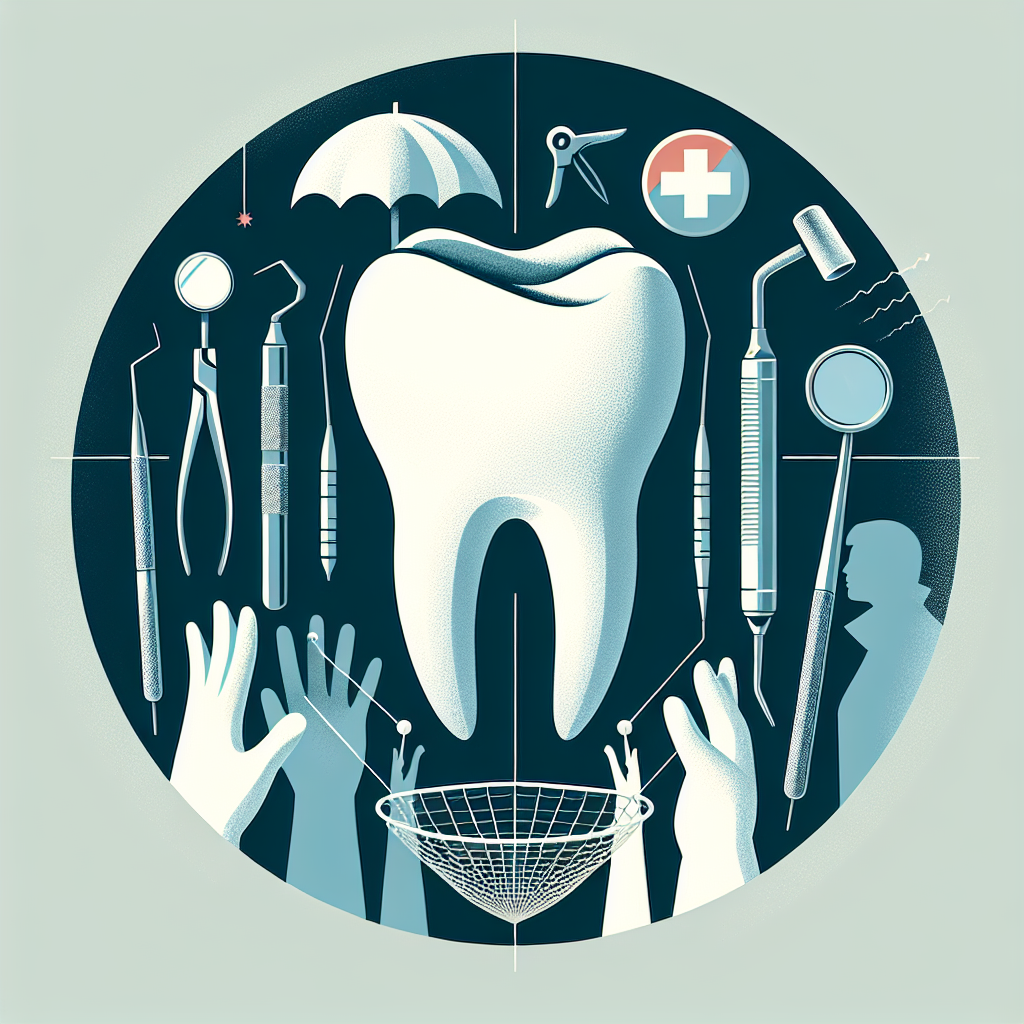Filed under Health Insurance on
Does Health Insurance Cover Tooth Extractions?

When it comes to dental procedures, one of the most common questions people ask is: does health insurance cover tooth extractions? It's a query that holds significant importance, especially considering the potential costs associated with dental care. Understanding the compatibility between health insurance and dental coverage is critical for anyone seeking to manage their healthcare expenditures effectively.
Understanding Health Insurance and Its Scope
Health insurance is primarily designed to cover medical expenses related to illness and injury. This typically includes doctor's visits, hospital stays, preventive care, prescriptions, and some types of outpatient care. However, dental coverage often falls outside the general scope of health insurance policies.
Health Insurance vs. Dental Insurance
To understand if health insurance covers tooth extractions, one must first grasp the difference between health and dental insurance. While health insurance handles general medical needs, dental insurance specifically covers oral health care and is often purchased as a separate plan. Most health insurance plans do not automatically include dental benefits, thus leaving a gap when it comes to specific procedures like tooth extractions.
Does Health Insurance Cover Tooth Extractions?
The answer to whether health insurance will cover tooth extractions is often "it depends." Several factors determine the extent of coverage, and these heavily depend on the specifics of your health insurance policy. Let’s delve into scenarios under which such coverage might exist:
Medically Necessary Tooth Extractions
In certain cases, tooth extractions may be deemed medically necessary, and in such situations, your health insurance might provide coverage. For instance, if a tooth extraction is required due to an underlying medical condition, such as cancer treatment (where extraction is needed to prevent infection), some health insurance plans may cover the cost.
Insurance policies vary widely, so it is crucial to confer with your provider to confirm whether medically necessary tooth extractions are covered under your plan.
Dental Trauma and Accidents
If a tooth extraction is the result of an accident or trauma, there’s a possibility that health insurance could cover the procedure. This typically falls under emergency care, particularly if the dental injury is a part of or leads to a broader health issue needing immediate attention. In such cases, documentation detailing the necessity of the tooth extraction as part of trauma treatment will be essential for insurance claims.
Dental Insurance and Tooth Extractions
For routine tooth extractions, dental insurance is more likely to provide the necessary coverage. Dental insurance plans are specifically designed to deal with oral healthcare and typically include benefits for a range of services.
Typical Coverage in Dental Insurance
Most dental insurance plans cover preventive services, such as cleanings and check-ups, more comprehensively than more intensive procedures. However, tooth extractions generally fall under basic procedures that many plans partially cover. The coverage percentage can vary, so checking the specifics of your policy is always advisable.
- Preventive Care: Complete or high coverage for routine exams and cleanings.
- Basic Procedures: Partial coverage for extractions, fillings, and non-surgical treatments.
- Major Procedures: Some coverage but often less than for basic procedures, includes surgical extractions and orthodontics.
Factors Affecting Coverage
Several variables can affect whether health insurance covers tooth extractions. Here are a few pivotal factors:
The Nature of Your Health Insurance Plan
Some health insurance plans incorporate elements for dental coverage, especially comprehensive plans or those linked with Health Maintenance Organizations (HMOs). If your health policy has such synergies, a deeper understanding of the terms and conditions might yield pleasant surprises regarding coverage.
Your Specific Dental Insurance Policy
If you possess dental coverage, understanding the details of your specific policy is vital. Plans can significantly differ on what percentage of an extraction they’ll cover. Moreover, the in-network versus out-of-network provider distinction can also impact out-of-pocket costs.
What If Insurance Does Not Cover Extraction?
It's not uncommon to face scenarios where neither health nor dental insurance covers tooth extractions. What should one do in such instances?
Exploring Discount Dental Plans
Discount dental plans are an appealing alternative to traditional insurance. They offer discounts on a range of procedures, typically at a negotiated rate, and generally come with a lower cost entry compared to full insurance plans. Though not insurance in the traditional sense, members can still save significantly on dental procedures.
Healthcare Savings Accounts (HSAs) and Flexible Spending Accounts (FSAs)
For individuals with access to these accounts, using pre-tax dollars to offset the cost of tooth extractions can be an effective strategy. HSAs and FSAs provide a tax-advantaged way to pay for eligible medical expenses, including dental procedures like tooth extractions, potentially cushioning the financial impact.
Conclusion
In conclusion, the question of does health insurance cover tooth extractions is nuanced and dependent on several interrelated factors. While routine extractions are rarely covered by health insurance, cases deemed medically necessary or resulting from trauma might be exceptions. However, often dental insurance takes precedence, offering partial coverage for such procedures. Navigating the complex landscape of health and dental insurance requires a detailed understanding of your policies to optimize your health benefits effectively. Always review your specific plan details, explore complementary financial health strategies, and consider additional resources such as HSAs or discount dental plans to ensure you are well-prepared for any dental care costs that arise.





